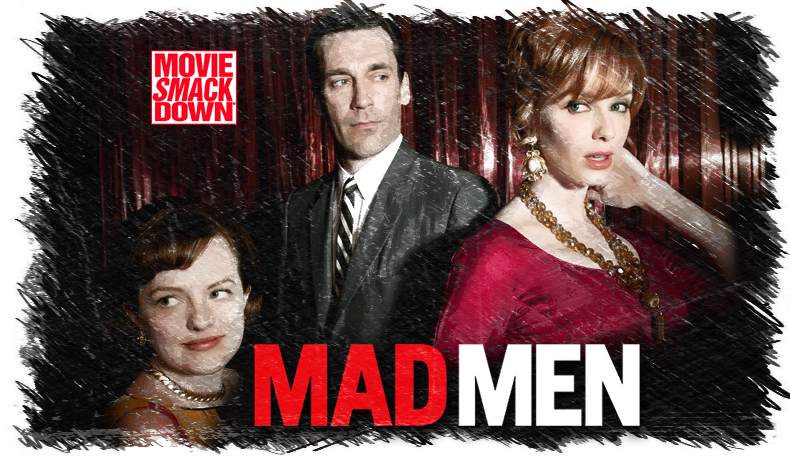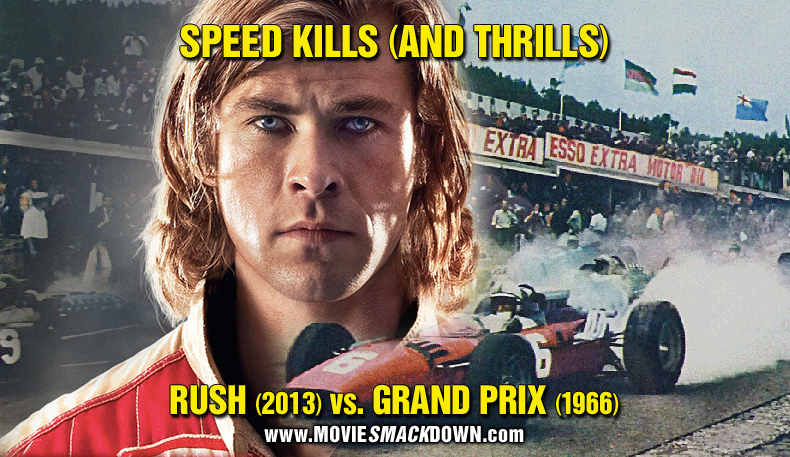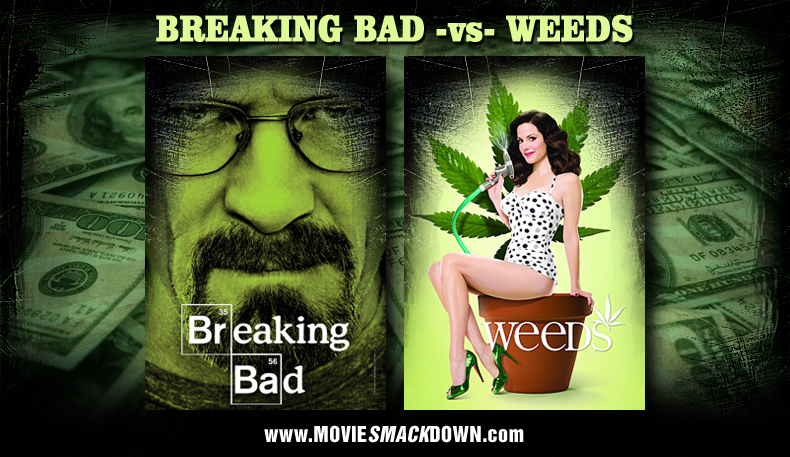
 The Smackdown
The Smackdown
In the age of instant communication, instant gratification looking back 50 years seems like a trip in the way-back machine. Many of us remember this as the time our parents scrambled to attain a level of security described by the catchall American Dream.
We tie this period before the Cuban Missile Crisis to hula hoops, fallout shelters, drive-in movies, TV dinners and American Bandstand. This was a time when people in the background –mostly men– worked overtime branding these cultural signposts as passports to the good life. This period matters. It directed the shape of many of our lives.
Against that backdrop, “Mad Men” began a low-key run on cable’s AMC channel. The program caught fire and soon begins a third season. The ensemble drama is set in a fictional New York advertising agency, Sterling Cooper and follows hotshot Don Draper (Jon Hamm) in and out of the office. Along the way, dramas play out in a time capsule where the look of that material world and the attitudes of the time strike a consistent, convincing note. Even better dramatically, all is not right in this artificial paradise. So far, “M-M” has pulled in six Emmys, three Golden Globes plus a BAFTA award and the critical run may not be over.
Director Sam Mendes visited this creative neighborhood in 2008’s “Revolutionary Road,” just out on DVD and Blu-ray. Featuring his real-life wife, Kate Winslet and Leonardo DiCaprio breathe discomforting life into Richard Yates’ 1961 novel. Both look right in the environment. They have problems, and it’s not a giant leap in logic to imagine the DiCaprio and Hamm characters running into each other at the train station.
Good drama plays well on large screen and small and this Smackdown! will focus on the smaller elements that advance the story: Which project evokes the stronger sense of historical authenticity and anxiety in this big apple to big apple comparison?
[singlepic id=1141 w=320 h=240 float=right]
The TV program
Don Draper is much better as creative director than husband. In the office he inspires and cajoles his creative team, getting their best while offering little of himself. Draper is not comfortable with his life, and prefers offering surface charm to a real dose of his true self. In the snake pit that is Cooper Sterling this may be simple self-preservation. Indeed, his wife Betty (January Jones) has only a sketchy understanding of the man she married. He’s not the man she thinks he is; his real name isn’t even Don Draper. Not surprising, their marriage is a tense partnership between strangers, spinning out of each other’s reach in the suburbs.
Don and Betty are not the only characters with issues. Among them:
- Pete Campbell (Vincent Karthheiser), more shark than man on the climb up the ladder at Cooper Sterling
- Peggy Olson (Elisabeth Moss), the new secretary whose talent and steel reserve mark her for bigger things at the agency
- Joan Holloway (Christina Hendricks), the office manager who strikes an uneasy truce over being a woman in what she recognizes is a man’s world
- Roger Sterling (John Slattery), the avaricious senior partner standing atop this amoral corporate pyramid.
This a highly flawed bunch. They’re joined by a busy assortment of co-workers and underlings whose idiosyncratic orbits intersect over 26 episodes within this suite of Madison Avenue offices.
[singlepic id=704 w=320 h=240 float=right]
The Movie
By the late 1950’s Frank and April Wheeler seem to have it all, if you don’t look too closely. They’ve come a long way, to the suburbs, to lives they grow desperately unhappy with inside that house on Revolutionary Road.
Everything, now, feeds their discontent: The house, the kids, the train ride carrying Frank to an unsatisfying job in Manhattan, and April’s recognition that she is neither good actress, nor happy hausfrau. They drift apart, to others.
Frank and April want to turn back the clock, to their younger, better selves free of family obligations, when living in Paris seemed like the best thing. April decides to sell everything and move the family to France, where Frank says people really know how to live and where he can decide what to do with his life.
This plan flies off the rails with catastrophic results and life resumes –but differently– along Revolutionary Road.
The Scorecard. Let’s deemphasize –but not ignore– the dramatic arc of these storylines; the movie develops its action over two hours, “Mad Men” over 26 hours and counting.
There’s no minimizing the quality of cast and production in “Revolutionary Road.” DiCaprio and Winslet are outstanding as characters easy to identify with, very hard to like. Frank and April don’t love each other enough to repair a damaged marriage, preferring an easy fix to the hard work of reconnecting. I never came close to learning what Frank really wants to do, or why France and not somewhere closer to familiar surroundings. I may never fully grasp April’s ultimate actions; they make the Wheeler’s failure irreversible. The screenplay by Justin Haythe shows their despair in every dimension. It’s hard to watch.
But not hard to look at. The production, art, set and costume design are letter perfect. Director Mendes gets the most from every knick-knack and performance. Kate Winslet looks great in those clothes. Kathy Bates, Kathryn Hahn and Academy nominated Michael Shannon make anyone want to flee the neighborhood.
“Mad Men” shows an equally perceptive eye for the clothing, mannerisms and attitudes of the period. Within the compressed production schedule of series television that says a lot. This project is greatly aided by a memorable cast of distinct, quirky characters whose side-stories lighten the tone and help carry the dramatic burden. This show would be hard viewing if it weren’t so well cast. Jon Hamm could use more expression.
“Mad Men” owes everything to series creator Matthew Weiner, who cowrites scripts and juggles the various directors and productions. He is the creative backstop here, as Sam Mendes is for “Revolutionary Road.”
Both clearly succeed but does one make you want more after the final credits? It’s a tough call and I cannot avoid relying on the material in making a final choice.
The Decision
I evaluate these projects, not Mendes’ work in “American Beauty” or Weiner’s on “The Sopranos” or “Becker.” At best, they led both to this juncture.
There’s no quibbling here: Both take pleasure in the trappings of era during which these dramas play out. They take “Revolutionary Road” only so far, leaving a bleak and unsentimental unraveling many of us witness in real life. There is much to admire in the film making here, but not always a lot to like in the characters or the story.
This period was not torture for everyone who lived through it, and “Mad Men” keys into that. There’s plenty of empty materialism and character flaws and Matthew Weiner effectively uses them to frame the dramatic action. “M-M” embraces a hopeful outcome, “R-R” cannot see one.
It comes to this: “Revolutionary Road” is a fine film I will rarely revisit. By contrast, “Mad Men” is the more engaging costume drama set in the same time frame. It is smart and plausible in time and place. I’ll be following our winner — “Mad Men” — on TV and DVD for many years to come.




Interesting. There were pretty high expectations for “Revolutionary Road” and it fell short for audiences. There were no real expectations for “Mad Men” and it grows and grows on viewers. Why? It’s the expanded cast where there is the chance of redemption for some of the characters at least, but “Revolutionary Road,” by virtue of its focus, just goes off the cliff for people after they realize the story is going to end badly. Thank God for “Mad Men,” though. You’d be surprised how often executives say that a script is bad because it’s “period,” contending that nobody will care. C’mon, execs! Period is cool and when it’s done well with characters you care about it can be as vibrant and involving as anything set in today’s world.